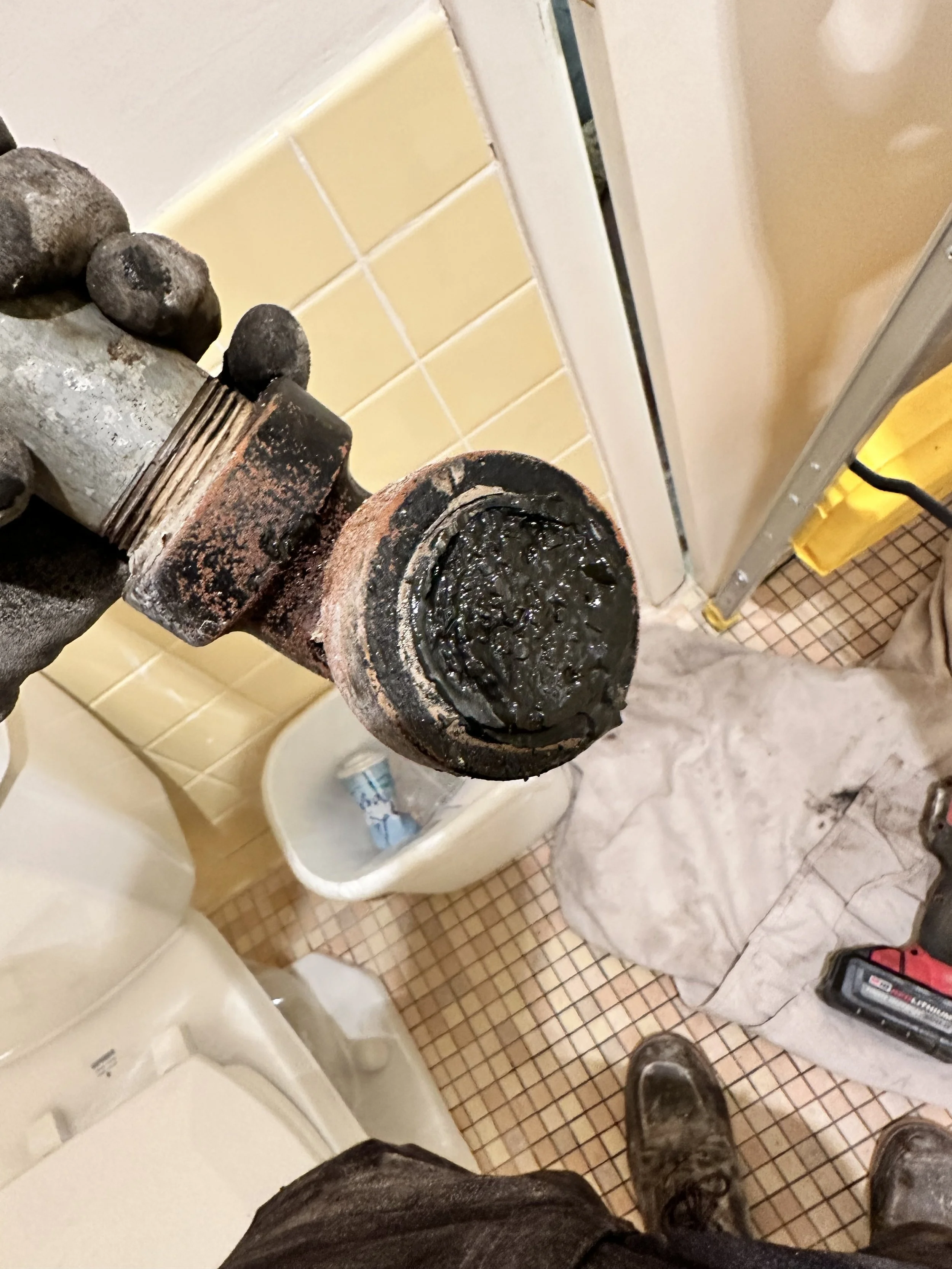The Hidden Dangers of Chemical Drain Cleaners and Safer Alternatives
When faced with a clogged drain, many homeowners reach for the nearest bottle of chemical drain cleaner, hoping for a quick and easy fix. These products are widely available, heavily marketed, and promise to dissolve even the toughest clogs in minutes. However, what many people don’t realize is that these chemical drain cleaners come with a host of hidden dangers that can cause more harm than good. In this post, we’ll explore the risks associated with chemical drain cleaners and introduce safer, more effective alternatives to keep your drains clear and your home safe.
Cemented Shut Drain
Once partially plugged drain permanently cemented shut from chemical drain cleaners
The Risks of Chemical Drain Cleaners
1. Health Hazards
Most chemical drain cleaners contain highly corrosive substances like sulfuric acid, lye (sodium hydroxide), or hydrochloric acid. These chemicals can cause severe burns on contact with skin, eyes, or mucous membranes. The fumes they emit can also irritate the respiratory system, potentially leading to coughing, difficulty breathing, and even long-term respiratory issues with repeated exposure.
2. Damage to Plumbing
While chemical drain cleaners are designed to break down clogs, they don’t discriminate between a blockage and the pipes themselves. Over time, the harsh chemicals can erode the inner surfaces of your pipes, especially if they are older or made of metal. This can lead to leaks, weakened pipes, and costly repairs that far outweigh the price of the cleaner itself.
3. Environmental Impact
When you pour a chemical drain cleaner down the drain, it doesn’t just disappear. These chemicals can end up in local water systems, posing a significant threat to aquatic life and the environment. They are difficult to remove from wastewater and can contribute to pollution in rivers, lakes, and oceans.
4. Limited Effectiveness
Chemical drain cleaners are often only a temporary solution. They might clear a portion of the clog, but they rarely remove the entire blockage, leading to recurring issues. In some cases, they can even make the problem worse by compacting the clog, making it harder to remove.
Safer Alternatives to Chemical Drain Cleaners
Fortunately, there are several safer and more environmentally friendly alternatives to chemical drain cleaners that are just as effective at clearing clogs.
Mechanical Methods
Plunger:
A plunger is one of the simplest and most effective tools for clearing minor clogs in sinks, toilets, and tubs. It works by creating a vacuum that can dislodge the blockage.
Drain Snake:
Also known as a plumber’s auger, a drain snake is a flexible, coiled tool that can reach deep into the pipes to break up and remove clogs. It’s especially useful for hair, grease, and other common obstructions.
2. Natural Solutions
Baking Soda and Vinegar:
This classic combination is a great natural alternative to harsh chemicals. Pour a half cup of baking soda down the drain, followed by a half cup of vinegar. Let the mixture sit for 15-30 minutes, then flush with hot water. The chemical reaction between the baking soda and vinegar can help break down clogs and clean the pipes.
Enzyme-Based Cleaners:
These cleaners use natural enzymes to break down organic matter in your pipes without the harshness of traditional chemical cleaners. They are safe for your plumbing, your health, and the environment.
Conclusion
While chemical drain cleaners might seem like a convenient solution to a clogged drain, the risks they pose to your health, plumbing, and the environment are simply not worth it. By choosing safer alternatives like mechanical methods, natural solutions, and preventive maintenance, you can keep your drains clear and your home safe without the hidden dangers of toxic chemicals. Next time you encounter a clog, consider reaching for a plunger or a baking soda and vinegar mixture instead—your pipes and the planet will thank you.

